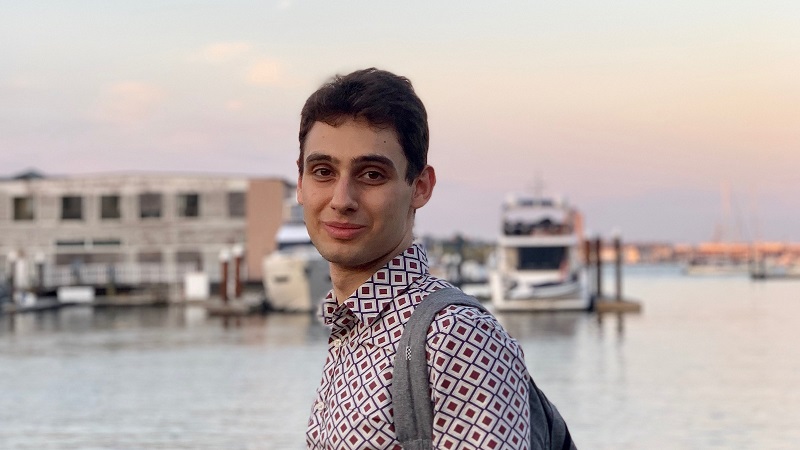I am an undergraduate student in my fourth year, majoring in computer science at American University of Armenia in Yerevan. This summer I’m working in the Dystonia and Speech Motor Control Lab at Harvard Medical School and Massachusetts Eye and Ear Infirmary.
What’s the cause of the rare movement disorder called Dystonia? No one knows for sure… But we are trying to figure that out! I am looking at brain signals in MRI images—trying to decrypt them without a key. Then I am searching for hints in genetic data. It’s like a maze, a puzzle we are solving without the whole picture. Spice it up with a little alchemy of Bayesian inference and it’s a whole adventure. And when something is unlocked, the world is your oyster!
What career did you aspire to as a child and why?
The ultimate freedom of choice has always been my priority. That’s why I originally wanted to become an actor, transforming into someone new with each role. Then I learned through self-exploration that I don’t need to be everything. I am most excited about the little discoveries, the weird equations, the human brain and brainy people. I have found all that in academia.
What has been one of the most surprising moments in your career so far?
The direction of scientific thought development today is leveraged by the will of large industrial entities. This vast commercialization of science has been my biggest disappointment. But it teaches me the value of the authentic research driven by pure curiosity. Now I know that for me science is like art: the real one requires unconditional love and strong dedication.
Who or what most inspires you and why?
Emptiness. Gaps. Mysteries. I am inspired by the void I can fill.
Also, I believe that the world is moved forward by the accidental encounters that people have, and short sincere conversations. Meeting interesting people and learning from them has continuously been the source of my inspiration.

